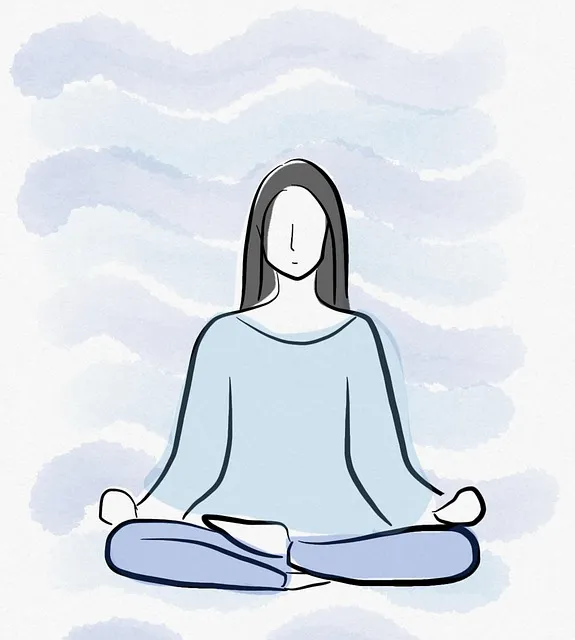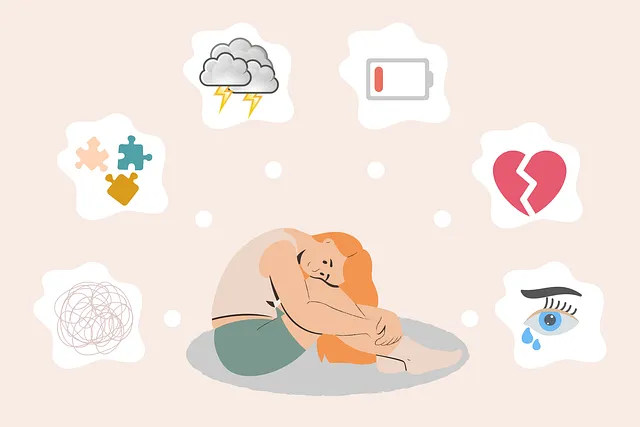The Kaiser Permanente behavioral health center Centennial offers comprehensive mood regulation services, combining evidence-based practices like Cognitive Behavioral Therapy (CBT) with compassion cultivation and lifestyle adjustments. They help individuals manage emotions through personalized therapy and group support, focusing on coping skills development, burnout prevention, and stress reduction techniques. CBT identifies and changes negative thought patterns, empowering clients to maintain mental wellness and prevent conditions like depression. The center also promotes mindfulness, relaxation, balanced lifestyles, and conflict resolution for overall emotional well-being.
“Discover effective mood regulation strategies inspired by the expertise of the Kaiser Permanente Behavioral Health Center Centennial. This comprehensive guide explores various techniques, from Cognitive Behavioral Therapy (CBT) for structured emotional management to lifestyle adjustments like diet, exercise, and sleep for holistic well-being. Additionally, learn mindfulness and relaxation techniques to reduce daily stress. Implement these strategies to enhance your emotional resilience, just as the center’s innovative approaches empower individuals to thrive.”
- Understanding Mood Regulation: The Role of Kaiser Permanente Behavioral Health Center Centennial
- Cognitive Behavioral Therapy (CBT): A Step-by-Step Guide for Effective Mood Management
- Lifestyle Adjustments: Diet, Exercise, and Sleep for Improved Emotional Well-being
- Mindfulness and Relaxation Techniques: Calming Tools for Daily Stress Reduction
Understanding Mood Regulation: The Role of Kaiser Permanente Behavioral Health Center Centennial

Understanding Mood Regulation is a crucial step towards enhancing overall well-being. The Kaiser Permanente Behavioral Health Center Centennial plays a pivotal role in this domain, offering specialized services and guidance for individuals seeking to manage their moods effectively. This center recognizes that mood regulation isn’t merely about treating mental health conditions; it’s an essential skill for navigating life’s challenges. By integrating evidence-based practices, the center empowers patients with tools like coping skills development and burnout prevention strategies, fostering a sense of resilience and emotional equilibrium.
Furthermore, the Kaiser Permanente Behavioral Health Center Centennial highlights the power of compassion cultivation practices in mood regulation. These practices encourage individuals to cultivate self-compassion and empathy towards others, creating a supportive inner environment that buffers against negative moods and stress. Through personalized therapy sessions and group support, the center assists individuals in unraveling complex emotional landscapes, ultimately promoting long-lasting mental well-being.
Cognitive Behavioral Therapy (CBT): A Step-by-Step Guide for Effective Mood Management

Cognitive Behavioral Therapy (CBT) offers a structured and proven approach to mood regulation, making it a popular choice among mental health professionals, including those at Kaiser Permanente behavioral health centers like Centennial. This therapy focuses on identifying and changing negative thought patterns and behaviors that contribute to low mood or depression.
The process begins with assessing your current thoughts, feelings, and behaviors through a collaborative partnership with a therapist. They will guide you in recognizing unhelpful cognitive distortions and help restructure these thoughts using evidence-based techniques. CBT teaches valuable Mind Over Matter principles, empowering individuals to take control of their emotional responses. Through this step-by-step process, you’ll learn effective coping strategies tailored to your needs, ultimately enhancing mental wellness and preventing conditions like depression.
Lifestyle Adjustments: Diet, Exercise, and Sleep for Improved Emotional Well-being

At the Kaiser Permanente behavioral health center Centennial, experts emphasize the power of lifestyle adjustments for mood regulation and emotional well-being. A balanced diet rich in whole foods and omega-3 fatty acids can significantly impact mental health, much like regular exercise which releases endorphins, improving mood and reducing stress. Adequate sleep is also crucial; it allows the brain to process emotions effectively and consolidate memories. Integrating these practices into daily routines can serve as effective stress reduction methods alongside more structured mindfulness meditation and conflict resolution techniques.
By prioritizing diet, exercise, and sleep, individuals not only support their overall physical health but also create a foundation for resilience against emotional challenges. These lifestyle changes are accessible entry points to enhance mental fortitude, offering practical ways to navigate life’s ups and downs with greater ease.
Mindfulness and Relaxation Techniques: Calming Tools for Daily Stress Reduction

At the Kaiser Permanente behavioral health center Centennial, experts emphasize the power of mindfulness and relaxation techniques as essential tools for daily stress reduction. These practices, rooted in Mind Over Matter principles, are designed to help individuals cultivate mental wellness by calming the mind and soothing the body. Techniques such as deep breathing exercises, progressive muscle relaxation, and guided meditation can significantly enhance one’s ability to manage stress effectively.
By incorporating these mindfulness techniques into their daily routines, folks can create a sense of tranquility, improve focus, and reduce anxiety levels. The Kaiser Permanente behavioral health center Centennial encourages its clients to explore various relaxation methods to find what works best for them, ultimately fostering better mental wellness and overall quality of life.
In conclusion, managing mood effectively is a multifaceted approach. As highlighted by the expertise at Kaiser Permanente Behavioral Health Center Centennial, combining cognitive behavioral therapy, lifestyle adjustments, mindfulness, and relaxation techniques can significantly improve emotional well-being. By integrating these strategies into daily routines, individuals can better navigate life’s challenges and maintain a sense of balance and contentment.






